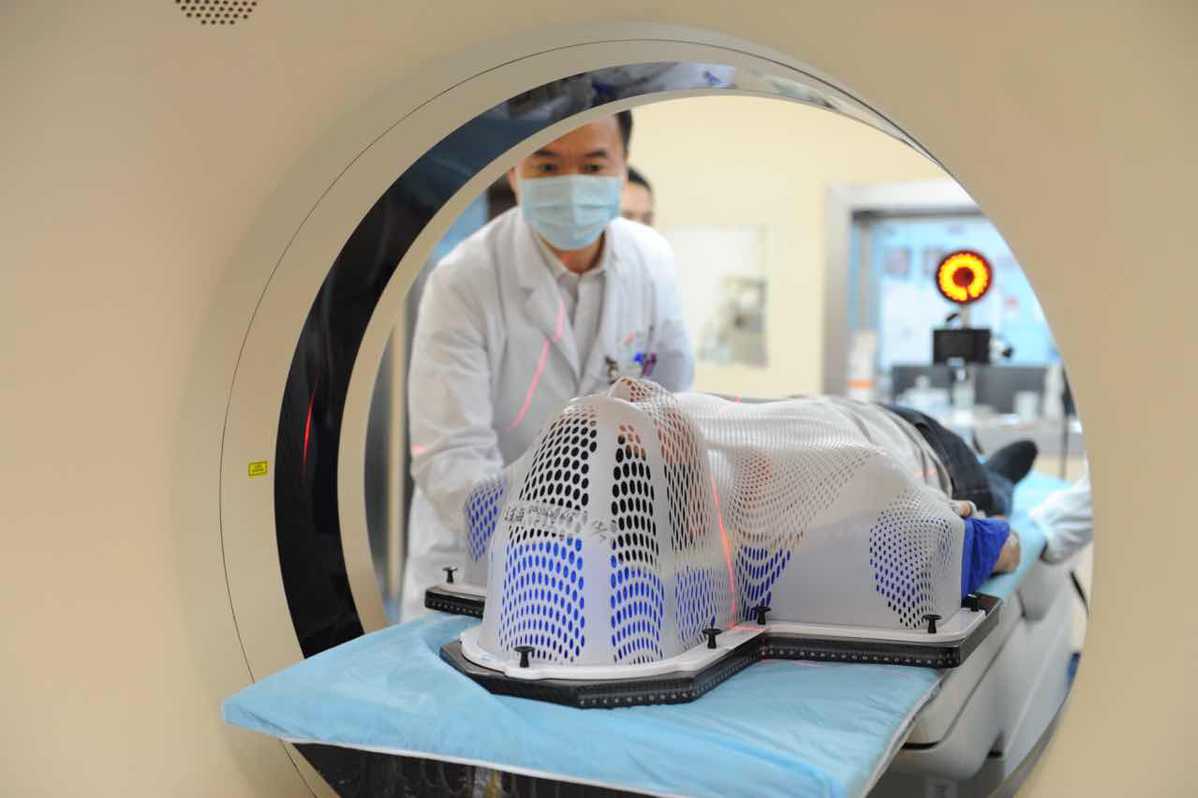
(Photo: chinadaily.com.cn)
A team of scientists in South China's Guangdong province has taken the steps to become the first in the world to treat nasopharyngeal cancer with artificial intelligence (AI) technology, announced the Sun Yat-sen University Cancer Center on Tuesday.
In collaboration with the Chinese University of Hong Kong, the center, based in the provincial capital city, Guangzhou, said it has realized automated tumor target contouring on magnetic resonance imaging (MRI) pictures of carcinoma patients thanks to AI technology. Thus, the efficiency and accuracy of radiation therapy on the tumor can be greatly enhanced.
The AI system scored a 79 percent accuracy rate in tumor target contouring in the research led by Sun Ying, a professor at the cancer center.
In 66 of the 203 research samples, the AI-automated contouring results could be used for radiation therapy planning without any correction, and in other 114 samples, only minor corrections were necessary.
An article on the research was published in international science journal Radiology on March 26.
Guangdong province has a high incidence of nasopharyngeal carcinoma, a disease for which radiation therapy is the primary treatment. Sun Yat-sen University Cancer Center admits more than 5,000 such patients every year.
For deep learning, the AI system was loaded with MRI images of 1,021 nasopharyngeal carcinoma patients with contouring by two experienced radiation oncologists.
In a test involving 20 patients and eight radiation oncologists from seven hospitals, the AI system beat four radiation oncologists and drew a tie with the other four in tumor target contouring.
To explore the clinical value of the research, two months after the test, the eight radiation oncologists were asked to correct the AI automated contouring results, which is a process called AI assisted contouring, and it was found to help improve the accuracy of contouring by the doctors.
The research result indicates AI-assisted contouring helps raise the accuracy in contouring and allows less experienced doctors to acquire the accuracy exhibited by experts.
This should provide solutions for precise and efficient tumor target contouring, and cast a positive impact on tumor control and the survival of patients, Sun said.
To expand the research, automated contouring of some healthy parts of nasopharyngeal carcinoma patients was carried out to better protect patients' organs.
As a next step, the research team plans to make clinical tests in Guangzhou, Singapore and South China's Guangxi Zhuang autonomous region through a cloud platform it has built.


